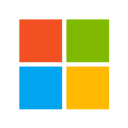Top Windows Server 2003 Alternatives for Modern IT Infrastructures
Windows Server 2003, released on April 24, 2003, was a foundational server operating system by Microsoft, built upon the Windows XP core. While it delivered improved scalability and performance over its predecessor, Windows 2000, its lifecycle has long ended. Running an unsupported operating system like Windows Server 2003 poses significant security risks, compatibility issues, and a lack of modern features. For any organization still relying on this dated system, finding a robust and secure Windows Server 2003 alternative is not just recommended, but essential for operational continuity and data protection.
Top Windows Server 2003 Alternatives
As you transition away from Windows Server 2003, a wide array of powerful and flexible server operating systems and solutions are available. Whether you prioritize open-source flexibility, seamless Windows integration, or a robust Linux environment, there's a modern alternative to fit your specific needs.

Ubuntu Server
Ubuntu Server is a leading free and open-source Linux-based platform ideal for scale-out computing, offering a versatile and secure Windows Server 2003 alternative. It's excellent for deploying OpenStack clouds, Hadoop clusters, and various other server applications. Key features include broad Linux and ARM support, making it a powerful and cost-effective choice for modern infrastructure.

Univention Corporate Server
Univention Corporate Server (UCS) is an open and innovative platform designed to efficiently operate and manage server applications and complete IT infrastructures across Linux, MS Windows, and Mac OS X. As a free and open-source solution based on Debian, UCS is an excellent Windows Server 2003 alternative, especially for environments needing robust directory services. It features Active Directory authentication, integration, and migration, DHCP Server, DNS management, Single Sign-On (including SAML), Kerberos, LDAP Services, Multi-Factor Authentication (MFA), network monitoring, Docker support, and comprehensive server management capabilities, offering a powerful and integrated replacement.

Windows Server 2012
Windows Server 2012, codenamed "Windows Server 8," is a commercial server operating system and a direct successor in the Windows Server lineage. For those accustomed to the Microsoft ecosystem, it serves as a natural and more modern Windows Server 2003 alternative. It enhances the platform with significant features like improved Active Directory integration, data deduplication, and advanced virtualization capabilities, providing a robust and familiar environment for server operations.

Windows Server 2019
Windows Server 2019 is built on the strong foundation of Windows Server 2016, offering a modern, secure, and feature-rich commercial Windows Server 2003 alternative. While the provided data indicates no new features explicitly added, it represents a significantly more advanced and supported operating system within the Windows family, benefiting from years of development in security, performance, and integration with Microsoft's cloud services. It's a highly recommended upgrade for existing Windows environments.
Moving beyond Windows Server 2003 is crucial for maintaining a secure, efficient, and future-proof IT infrastructure. Whether you opt for the flexibility of open-source Linux distributions like Ubuntu Server and Univention Corporate Server or prefer to stay within the familiar Microsoft ecosystem with Windows Server 2012 or Windows Server 2019, carefully evaluate each option based on your specific requirements, existing infrastructure, and long-term strategic goals to find the best fit.